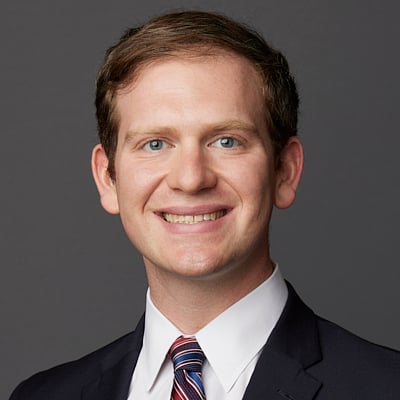U.S. Judge Ends Antitrust Claim Alleging Conspiracy to Manipulate Prices of Insulin Products
In this New York Law Journal article, Kirkland successfully represented Eli Lilly in a case where a New York federal judge dismissed an antitrust lawsuit alleging the pharmaceutical company along with three other major drug manufacturers conspired to manipulate the pricing of insulin products to boost profits.
Chief Judge Elizabeth Wolford of U.S. District Court, Western District in Rochester wrote that the plaintiffs failed to present a viable claim under the Sherman Act.
A federal judge in New York has dismissed an antitrust lawsuit that alleged four drug manufacturers manipulated the pricing of insulin products under a program intended to deliver low-cost medications to underserved patients.
In a 23-page opinion last week, Chief Judge Elizabeth Wolford of U.S. District Court, Western District in Rochester wrote that the plaintiffs failed to present a viable claim under the Sherman Act, both because the lawsuit hadn’t plausibly alleged parallel conduct by the defendants, and because it hadn’t plausibly alleged conduct giving rise to an inference of conspiracy.
Filed in July 2021 on behalf of Mosiac Health and Central Virginia Health Services, the suit had sought to certify a nationwide class of thousands of clinics and hospitals covered by the 340B drug discount program, while attempting to enact significant national healthcare policy reform through the antitrust laws, and collect treble damages for millions of dollars in drug sales.
The complaint alleged the manufacturers, Eli Lilly & Co., AstraZeneca Pharmaceuticals, Safoni-Aventis, and Nova Nordisk, lobbied to curtail abuse of the drug discount program, and when those efforts failed, they conspired to adopt parallel policy changes that reduced the availability of 340B discounts for insulin products.
Nine law firms represented the defendants, led by a team of attorneys from Kirkland & Ellis, which had won a motion to dismiss the case in September 2022, and led briefing and oral argument efforts. The court adopted many of the arguments raised in the defendants’ briefs.
The plaintiffs were represented by attorneys from Harter Secrest & Emery, Cafferty Clobes Meriwether & Sprengel and Aurelian Law.
The judge wrote that she was unconvinced by the plaintiffs’ second amended complaint that detailed the common impact of each defendant’s policy that led to an immediate decrease of sales through the 340B drug discount program by 60% to 90% in volume and 70% to 95% in lost savings.
“Far from demonstrating that Defendants engaged in similar conduct, the second amended complaint’s additional allegations provide further confirmation that the policies adopted by Defendants had substantial variations in both their timing and their particulars,” Wolford wrote.
Wolford said that one such “obvious alternative explanation” for their policy changes was an executive order by former President Donald Trump that became public the day the first of the supposedly unlawful policy changes took place.
In the first of the defendants’ changes to their 340B discounts, Eli Lilly informed the U.S. Department of Health and Human Services in May 2020 that it was ceasing to offer contract pharmacy discounts on the drug Cialis.
Two months later, after the defendants’ lobbying efforts to restrict 340B drug discounts failed, AstraZeneca advised HHS that beginning Oct. 1, 2020, it would recognize one contract pharmacy per covered entity for covered entities that do not maintain an on-site dispensing pharmacy with respect to a subcategory of its products.
Later in July 2020, Sanofi-Aventis announced a new policy regarding 340B contract pharmacy discounts requiring covered entities to provide sensitive prescription claims data through a software portal on commercially unreasonable terms.
Wolford recognized that policy as “completely different” from AstraZeneca’s.
In August 2020, Eli Lilly informed HHS of a further change to its policy, indicating that as of Sept. 1, 2020, it would discontinue voluntarily honoring requests for 340B contract pharmacies except primarily where a covered entity did not have an in-house pharmacy.
And in December 2020, Novo Nordisk informed HHS that it would stop offering contract pharmacy 340B drug discounts to hospital-covered entities as of Jan. 1, 2021.
Wolford noted that that change didn’t include either of the plaintiffs’ healthcare facilities.
Wolford went on to suggest that she had “serious doubts about the viability” of the complaint, in light of the Supreme Court of the United States unanimous Astra USA opinion by Justice Ruth Bader Ginsburg. It held that health care providers can’t sue drug makers for overcharging public hospitals for prescription drugs.
Wolford called the New York lawsuit “a backdoor attempt to use the antitrust laws to enforce Plaintiffs’ preferred interpretation of the 340B statute.”
The decision comes as litigation is ongoing nationwide over the proper scope of the Section 340B program, which affects more than $100 billion in drug sales each year.




